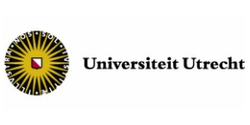Scientific Programmer
Updated: 15 Apr 2025
Do you love tweaking the latest AI models? Do you thrive in a dynamic environment with a positive work atmosphere and a lot of freedom to organise your work week? And does your passion lie in supporting high-quality research? Then join the Department of Information and Computing Sciences and the Department of Pharmaceutical Sciences as Scientific Programmer and strengthen our AI Technology for Life group.
Your job
Together with your colleagues in the AI Technology for Life group, you will develop AI foundation models for proteomics data. You will also support the Biomolecular Mass Spectrometry and Proteomics group in developing computational models and workflows. This position offers you the opportunity to shape your work with creativity and your own input. You will collaborate closely with researchers who will help evaluate the models you develop, as well as with the researchers who generate the proteomics data.
What will you do?
- Develop and extend AI foundation models for proteomics and mass-spectrometry data.
- Help to develop and maintain the necessary infrastructure for the AI foundation models, and computational analysis for mass-spectrometry data.
- Provide training to researchers and students on how to use research software and AI models effectively.
- Help to set up AI challenges, workshops (e.g. Kaggle challenges) and/or hackathons for mass-spectrometry data.
- Collaborate closely with researchers and the IT specialists within the departments.
Requirements:
You like to discover new machine learning techniques. You possess a proactive, positive and problem-solving attitude and are motivated to work in an academic environment.
Furthermore, you have the following qualifications:
- a PhD in Computing Science, AI, Bioinformatics or a related discipline;
- experience in developing deep learning AI models;
- demonstratable experience with programming language and deep learning libraries (e.g. Python with Keras, PyTorch and/or tensorflow);
- demonstratable experience in developing AI methodology (e.g. via GitHub repository).
We consider it an advantage if you also have:
- experience in developing Bioinformatics applications;
- experience in handling proteomics and/or mass-spectrometry data;
- participated in data science competitions (e.g. Kaggle).
Salary Benefits:
- A position for one year, with the possibility of a one-year extension based on a positive evaluation (for a total of two years);
- a gross monthly salary, depending on experience and qualifications, between €3,378 and €5,331 in the case of full-time employment (salary scale 10 under the Collective Labour Agreement for Dutch Universities (CAO NU));
- 8% holiday pay and 8.3% year-end bonus;
- a pension scheme, partially paid parental leave and flexible terms of employment based on the CAO NU.
In addition to the terms of employment laid down in the CAO NU, Utrecht University has a number of schemes and facilities of its own for employees. This includes schemes facilitating professional development, leave schemes and schemes for sports and cultural activities, as well as discounts on software and other IT products. We also offer access to additional employee benefits through our Terms of Employment Options Model. In this way, we encourage our employees to continue to invest in their growth. For more information, please visit Working at Utrecht University.
36 - 40 hours per week
Princetonplein 5

